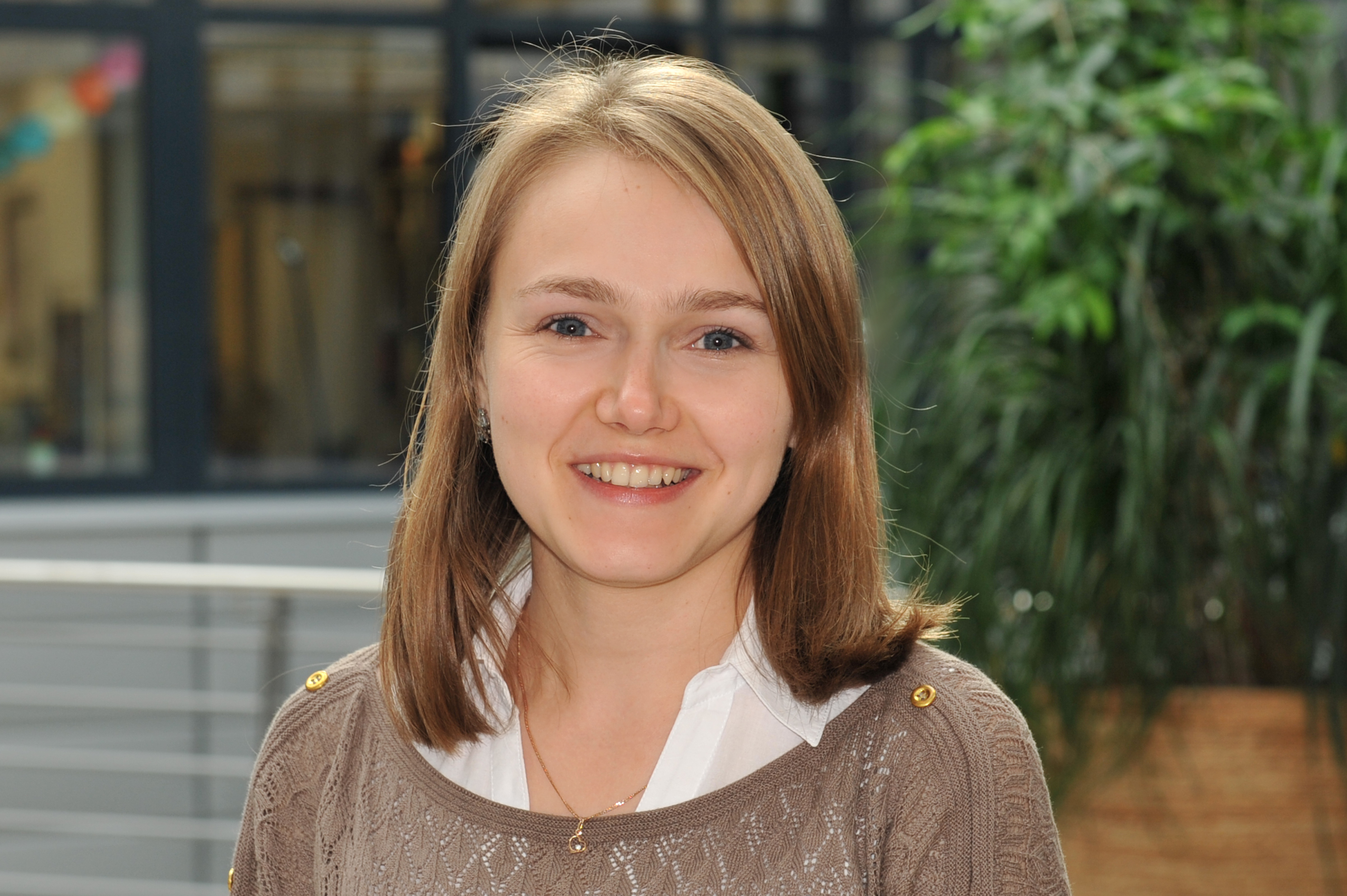
Medical Student Discovers a Passion for Research
Tatyana Dubich is a doctoral researcher at the Helmholtz Center for Infection Research in Braunschweig, Germany. We were lucky enough to sit down with her to chat about her research project, passion for medicine, and desire to improve conditions for doctoral workers.
Tatyana first took us back to her high school days, which is when she discovered her desire to study medicine. A friend convinced her to take a nursing course because she did not want to attend the classes alone. After a few weeks, the friend had left the course but Tatyana was hooked! The class included both theoretical and practical learning, but Tatyana most enjoyed learning about the different specializations that doctors can focus on. One particular case that really stuck out to her was that of a burn victim that was badly wounded, but able to recover. To Tatyana, this seemed like a miracle, but she realized doctors see this type of outcome regularly. After observing this, Tatyana realized that medical school was the perfect place to combine her love of helping others with her passion for taking on new challenges.
While in medical school, Tatyana loved what she was learning, but also realized she did not want to live a doctor’s lifestyle. As she described, “If you watch TV series, like ER or House MD, you get the impression that doctor’s lives are full of mysterious cases and exciting events. In reality, a doctor’s life is full of instructions and bureaucracy. In fact, you do more paperwork than real patient work. I am a rebel by nature and enjoy the freedom and creativity of science.” After coming to this conclusion, Tatyana realized she would prefer to focus on research work. Through this, she can still help patients, but instead of helping them one at a time, she has the potential to help thousands of people.
Currently, Tatyana is working on her doctoral research project studying human herpesvirus 8. This virus causes tumors in patients with suppressed immune systems, including those with HIV and organ transplant recipients. Currently, there are no specific treatments for this virus and only 50% of patients achieve remission. The virus only affects humans, making testing potential drugs difficult. The focus of Tatyana’s project is to create new ways to test these antiviral drugs so they can be offered to patients.
Tatyana works with the human cell line, but instead of standard cell culture technique, she is using a 3D culture model. This consists of cell aggregates embedded into the extracellular matrix, mimicking an in-vivo situation. The team has also developed a humanized mouse model, which allows them to study viral infections in a living organism. Tatyana uses these tools to investigate different systems and find the conditions which will best reflect a patient’s situation. After this, she can test the performance of potential drugs to identify possible treatments.
This project is challenging and complex, but Tatyana loves that no day is ever the same. Additionally, she is able to collaborate with scientists across different fields including chemists, virologists, and microscopy specialists; she loves being part of such a dynamic team. The most challenging part of the project is to find the molecular mechanisms of the effects that are recorded. Tatyana compares this process to “assembling a huge puzzle with thousands of pieces, where you have to put together data from different experiments so they make sense.” She finds this extremely exciting, but of course, at times it can be frustrating when the pieces do not quite fit together. Another challenge she has encountered is that experiments often need to be repeated. In each test, there are many variables including temperature, concentration, quality of material, and time point, all of which must be carefully controlled. If not, an experiment that took months to complete will need to be started again. This can be frustrating, but overall, finding positive results is worth the long process.
In addition to working on her doctoral project, Tatyana also serves as the head of the communications team for Helmholtz Juniors, an organization which represents the interests of doctoral researchers from 38 institutions across Germany. The organization works to improve working conditions, training, and career opportunities for doctoral researchers. Tatyana strongly believes in the work they are doing and as a result, is always happy to help spread the word! Through this project, she has also been able to write several different blog posts about various topics prevalent to doctoral researchers. One piece, in particular, gave an eye-opening look into the difficult working conditions that doctoral researchers often face. The proposed solution to this problem is to abolish stipends and instead, provide compensation for the full-time work these researchers do rather than only treating them as students. This is one of the improvements that Helmholtz Juniors is currently advocating for.
In the future, after she finishes her doctoral study, Tatyana would like to have a career in science communication publishing. She feels that the gaps between scientific advancement and public knowledge are problematic and influence everyday life. She would like to see advanced knowledge about vaccination, climate change, and cancer treatment. To illustrate her point, Tatyana talked about Steve Jobs and how he rejected modern cancer treatments because he didn’t believe in them. She cites this as an example of how not being correctly informed about science can cost a life. She hopes that by working to change these conditions she can prevent cases like this from happening in the future.
Tatyana is a very passionate researcher who is sure to make great contributions to the field of medical science. We are excited to see where her career takes her after she finishes her doctoral project. At Conseris, we are happy to provide a resource that makes this type of work more efficient and can aid in researchers’ success. See for yourself how Conseris can help your research project and start a free 30-day trial HERE.
